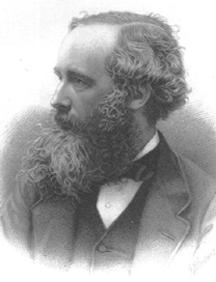Paul, this connects with the Shaftesbury presentation yesterday based on the work of Scottish physicist James Clerk Maxwell, who expanded on the seminal work of Michael Faraday and developed his four equations describing electromagetism, laying the theoretical groundwork leading to telecommunications, for one thing.

When the discussion afterwards came around to science and religion, what I did not hear mentioned was the fact that Maxwell was well known as a devout and ecumenical believer, just like the other “illiterate” scientists Leon Jaroff slams.
When consulted by Anglican archbishops on a question of science and Scripture, Maxwell replied:
… I should be very sorry if an interpretation founded on a most conjectural scientific hypothesis were to get fastened to the text in Genesis … The rate of change of scientific hypothesis is naturally much more rapid than that of Biblical interpretations, so that if an interpretation is founded on such an hypothesis, it may help to keep the hypothesis above ground long after it ought to be buried and forgotten.
That is precisely what is happening at the Grand Canyon. The devout gradualists in the Church of Unrevealed Geology simply can’t permit a Christian scientist to suggest a reasonable explanation of the region’s geology — simply because he believes there are real things which might not fit current scientific processes. Like Maxwell describes, it may (will) actually hinder science from discovering the truth it does not yet know how to measure. It’s happened repeatedly before, and it illustrates that Christianity is not the only faith-based system at work here.
It seems to me if voluntarily limit your toolbox to yardsticks, so to speak, you will have a very difficult time discussing very real quantities like mass, time, and radioactive decay. That’s why the ancient Pythagoreans tried to supress the so-called “irrational” numbers like the square root of two … yet they exist, nevertheless.
Thus Maxwell penetratingly criticizes the misuse of partial scientific knowledge to interpret scripture, let alone to shore up faith by supposed harmonization with the latest science. He has no need of scientific `proofs’ of Christianity. Instead, his expressed concern is that ill-judged linking of specific scientific theories with religion will be an impediment to the growth of science. And his emphasis, in relating science and faith, is in science’s enhancement of our wonder at the glory of creation. (Ian Hutchinson, “James Clerk Maxwell and the Christian Proposition”)

